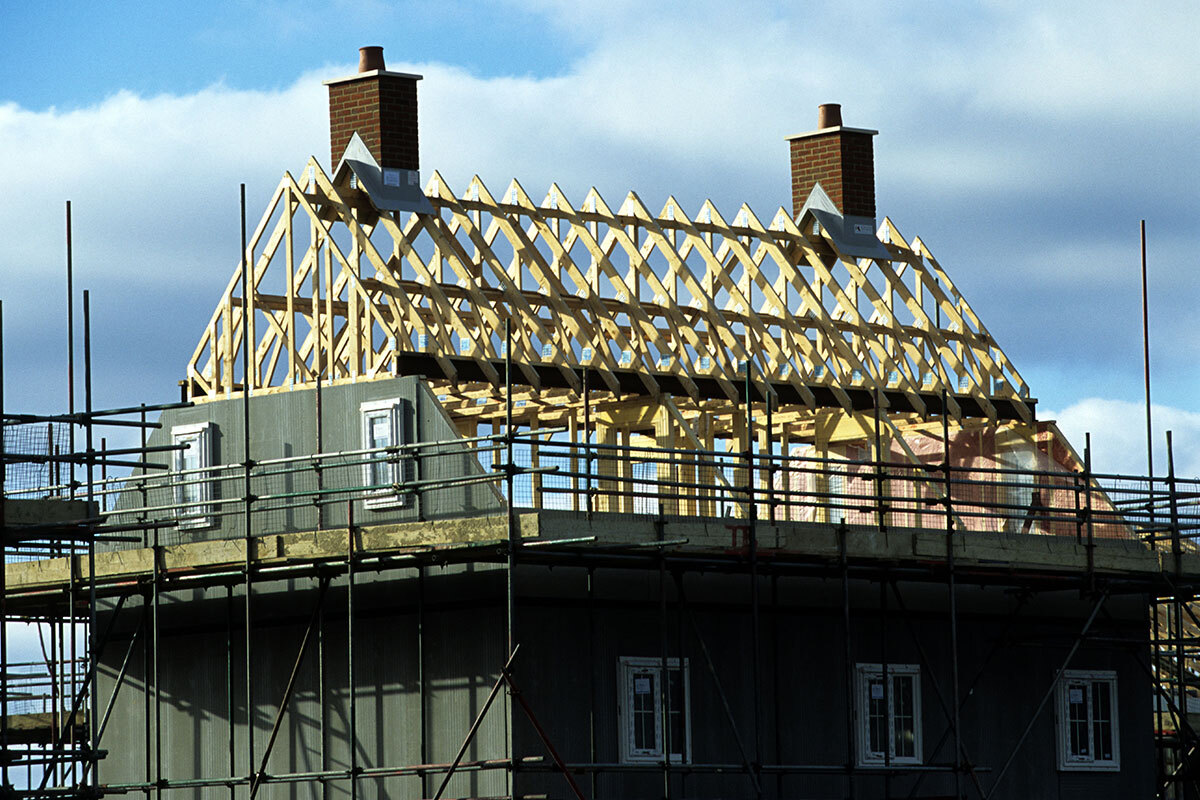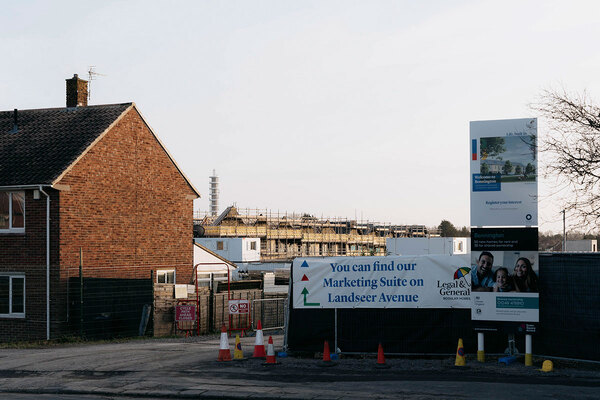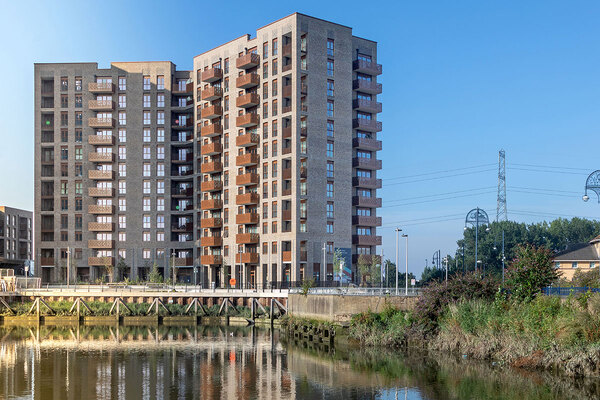You are viewing 1 of your 1 free articles
‘Zero chance’ of hitting 300,000 homes annual target without modular, argues TopHat chair
The chair of Goldman Sachs-backed TopHat has warned there is “zero chance” of the 300,000 homes a year target being hit without modular housing, as he urged ministers to help “restore confidence” in the sector.
Giving evidence to peers on the Built Environment Committee this week, Carl Leaver argued that offsite firms could help hit the target as traditional construction firms struggle to find workers.
“I would go far as to say that without category one modular, there is absolutely zero chance of building 300,000 homes in this country,” he said.
“If you look at what’s happening in the employment universe of traditional construction, it is terrifying.”
He pointed to figures that suggested there are 400,000 fewer workers in UK construction since the global financial crisis of 2008-09.
Modular firms have argued that workers it takes on in factories are often from outside the construction industry and can be trained up.
Mr Leaver was giving evidence as part of an inquiry on the future of modern methods of construction (MMC) in the wake of a number of high-profile failures, specifically among firms in the category one volumetric space.
Ilke Homes collapsed in June, while Legal & General halted production of new modular homes in May. A number of housing associations and councils had deals with these firms.
Homes England-backed House by Urban Splash also fell into administration last year.
Mr Leaver, who has also taken over as chair of trade body Make UK Modular, sought to distance TopHat from its failed rivals.
“Our approach is quite different to other modular builders,” he said. “We have a timber-frame solution, which means that our whole-life embodied carbon is 83% less than a traditionally built brick home. We can also apply automation to our production methods to keep our costs down.”
He also argued that the firm is able to offer more variety of housing designs due to its technology platform.
TopHat is in the process of building a new 650,000 sqft factory in Corby, Northamptonshire, which is expected to employ up to 1,000 workers.
Mr Leaver, who was appointed as chair of TopHat three years ago, said the firm is focusing on “broadening its routes to market”.
Earlier this year, the modular firm struck a deal with Persimmon, in which the FTSE 100 house builder had taken an undisclosed stake in TopHat for £25m.
For the first time, Mr Leaver disclosed that the agreement involves TopHat supplying Persimmon with 5,000 homes over five years.
Separately, TopHat is in conversations with “pretty much all the major house builders” about its product offer, according to the chair.
However, Mr Leaver admitted that the biggest barrier facing the modular sector is “consistent” volume and urged government support.
“If the government could restore some confidence in the sector by… guaranteeing projects and guaranteeing that suppliers will be paid, that will be huge,” he stated.
He also argued for the ringfencing of 10% of the government’s Affordable Homes Programme for category one modular.
Mr Leaver also suggested there should be a presumption in favour of planning approval for modular schemes and lower stamp duty for “highly” energy-efficient homes.
He also rejected calls for separate regulation for MMC. “We don’t need more regulation, it’s the last thing we need. We just need to be held to the same standard as a traditionally built home,” he stated.
Alongside Mr Leaver giving evidence at the inquiry was Michael Stirrup, chief commercial officer at Vistry, which this summer re-launched a major timber frame factory it took on through its acquisition of rival Countryside.
While Vistry operates in the category two MMC space, Mr Stirrup said he was aware of housing associations that will “specifically not buy” category one modular homes due to the negative headlines the sector has endured.
Earlier he admitted that MMC is currently pricier than traditional approaches. “You can’t get away from the fact, unfortunately, that MMC is more expensive than traditional means,” Mr Stirrup said.
“There are huge benefits to it [MMC], but it is still more expensive.”
Sign up for our development and finance newsletter
Already have an account? Click here to manage your newsletters












